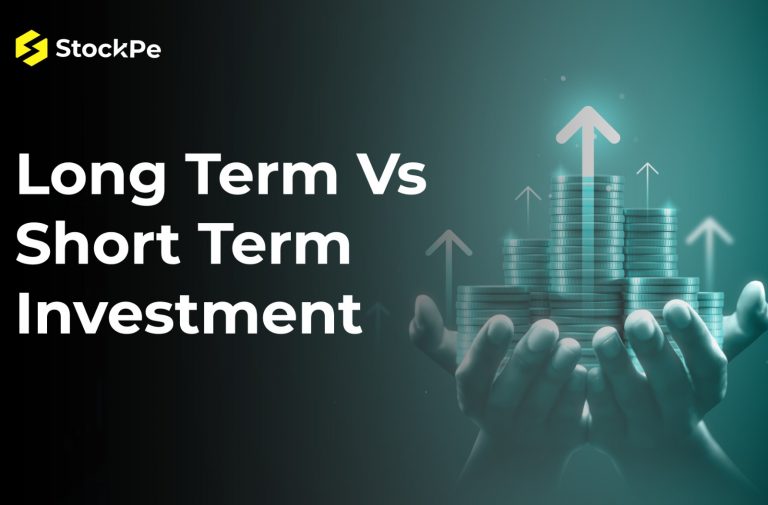Words like stock exchange, Dalal Street, bulls and bears, and other financial jargon often terrify readers of financial sections of newspapers. For novices or those who are unfamiliar with the subject, these terms are often associated with discomfort and a sense of being thrown into the deep end. But they are only words, and understanding their meaning between Nse and Bse is the only way to feel at ease with them. You’ll be shocked at how simple these things are as you read on.
What is a Stock Exchange?
Let’s begin by learning what stock markets and stock exchanges are before delving into the distinctions between the NSE vs BSE. The stock market is a secondary market where stock trading occurs. Companies can list their shares on the stock market following an Initial Public Offer (which occurs in the primary market), and investors and traders can then decide whether to purchase these equities.
An organised platform or market where buyers and sellers interact and trade stocks, bonds, and other assets is known as a stock exchange. It’s a typical venue where businesses list their stocks for sale and where investors and traders can purchase and exchange these equities with one another. Knowing the relationship between exchanges and firms is crucial to using stock exchanges effectively.
Exchanges, of which there are numerous worldwide, offer a transparent environment for stock trading. The NSE and BSE are the two main stock exchanges in India, and here is the difference between NSE and BSE.

A Glimpse of NSE
Based on market capitalisation, the National Stock Exchange (NSE) is the largest in India. It was the first in India to set up a completely automated and electronic, or screen-based, trading system when it was created in 1992 and officially recognised as a stock exchange in 1993.
Physical share certificates were no longer valid when an electronic trading system eventually replaced the vast paper-based trading system.
The National Fifty, sometimes known as NIFTY, is the stock exchange’s benchmark index. NIFTY was introduced in 1995–1996 and is based on the market capitalisation of fifty of the most traded firms that are listed on the National Stock Exchange.
Out of the sixteen hundred equities registered on the NSE, the Nifty 50 stocks are the largest and most liquid. The top fifty stocks are held by businesses that collectively reflect the various industrial sectors that make up the Indian economy.
In terms of the quantity of contracts transacted, the National Stock Exchange was recently recognised as the biggest exchange globally in the derivatives market. NSE has also received awards for being the year’s best index supplier and ETF index provider during the previous 20 years.
A Glimpse of BSE
When it was first founded in 1875, the Bombay Stock Exchange Bse was known as “The Native Share and Stock Brokers Association.” It is the oldest stock exchange in Asia and the older sibling of the NSE. The BSE only switched from the open-cry mechanism to completely electronic trading (BOLT) in 1995.
Like the NSE, the BSE has its benchmark index called SENSEX (Sensitive Index). It is a weighted average value of the top thirty firms listed on the stock exchange and was first launched in 1986. In addition to Eurex, SENSEX is traded globally on numerous other major exchanges in China, Russia, Brazil, and South Africa.
The BSE has several subsidiary companies. More than 250 companies are listed on the main SME platform in India, BSE. BSE Star MF, the biggest mutual fund platform in India, processes over 2.7 million transactions and adds over 2 lakh new SIPs each month. In the bond market, BSE Bond is likewise a market leader.
Key Points in Nse vs Bse
| Points of difference | NSE | BSE |
| Full form | National Stock Exchange | Bombay Stock Exchange |
| Index comprises of | Top 50 companies based on market capitalisation | Top 30 Companies |
| Listed Companies | 1696 listed companies | 5749 listed companies |
| Market Capitalisation | 2.27 Trillion | 2.1 Trillion |
| Liquidity | High Liquidity | Low Liquidity |
| SME Platform | NSE Emerge | BSE SME |
| Traded Products | NSE trades in – Equity, Currency and Commodity Derivatives, IPOs, Institutional Placement Program (IPP) and Offer for Sale | BSE trades in – Equity, Currency and Commodity, IPOs and Offer for Sale. |
| Online trading system | Introduced in 1995 | Introduced in 1992 |
| Liquidity | NSE has higher liquidity. | BSE offers comparably low liquidity. |
What to Choose- Nse vs. Bse?
Both stock exchanges are profitable and in good standing when it comes to the services they offer to investors. The two biggest stock exchanges in India are the Bombay Stock Exchange and the National Stock Exchange. Each stock exchange is distinct in its own right. Based on a variety of factors, the NSE and BSE differ in the following notable ways:
● Founded in 1875, the BSE is the oldest stock exchange in Asia in terms of incorporation. The Bombay Stock Exchange replaced its original name, the Native Share and Stock Brokers’ Association, in 1986. Conversely, NSE was established in 1992 as a tax-paying corporation by the Companies Act of 1956. The total value of a company’s outstanding shares on the share market is known as its market capitalisation.
● Trading opportunities are available on the NSE and BSE for a variety of securities. On the other hand, NSE claims to have a high trading volume that facilitates the efficient operation of the price discovery mechanism. This volume can improve trading chances because it balances the index’s constraint of having only a small number of stocks.
● To trade on the BSE, nevertheless, is necessary if you want to invest in equities that are exclusively listed there. Both of these platforms allow you to compare stocks, so you may select the one that best suits your needs. As an alternative, you can engage in arbitrage trading by purchasing stock on the NSE and selling on base. Furthermore, based on the stock’s liquidity, the price of the same stock would vary on the NSE and BSE platforms.
● Investors should choose equities related to investments carefully and methodically rather than concentrating on which stock exchange to choose. If there are a lot of stocks to sell, it will be advantageous for investors to do so on the NSE because share trading volumes are often higher than on the BSE.
For instance, the price shown could be Rs 149 if the stock of firm ABC is trading at Rs 150 on the NSE. Additionally, NSE prohibits trading of a small number of shares; in these circumstances, BSE is the ideal place to acquire or sell shares. For instance, stocks like SpiceJet, Claris Lifesciences, and others are exclusively available for trading on the BSE.
Wrapping Up
The two main stock exchanges in India are the NSE and BSE. On these platforms, traders can list and trade a wide range of financial assets, including corporate bonds, derivatives, stocks, mutual funds, and ETFs.
The NSE holds the largest market capitalisation among all stock exchanges in India. Out of the more than 1600 registered businesses on the NSE, the 50 largest and most liquid stocks are tracked by the NIFTY 50 benchmark index. Comparably, the Bombay Stock Exchange’s top thirty well-established companies are tracked by SENSEX, the benchmark index for BSE.
FAQs
Q. What is the National Stock Exchange of India?
In terms of the number of listed companies traded as of 2019, the National Stock Market is the leading stock market in India and one of the third largest stock exchanges worldwide. With a market valuation of $2,352 million, it was rated as the tenth-largest stock exchange in 2017.
Q. Can I purchase on the BSE and sell on the NSE?
Answer: A stock cannot be purchased on the BSE and sold on the NSE the same day or the other way around. They may, however, sell equities purchased on the BSE on the NSE two trading days after the date of acquisition and vice versa. Therefore, after T+2 days of purchase, stocks are added to the investor’s Demat account (Holdings).
Q: Why do NSE and BSE have different prices?
The answer is that the price of the same stock on the NSE and BSE differs, and this price variation is based on how liquid the stock is. Illiquid stocks could have a larger price differential. Another important distinction between BSE and NSE is stock liquidity.
Q: Which is the largest stock market exchange- NSE or BSE?
In terms of trading volume, NSE is the larger stock exchange amongst BSE and NSE. When it comes to market capitalisation, it is likewise bigger than BSE.
Q. Where can new investors go for BSE or NSE?
Since most stockbrokers are NSE and BSE members, investors can invest with either of them.





